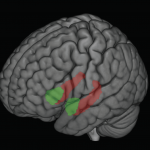Tag Psychology
The science of stereotyping: Challenging the validity of ‘gaydar’
"Gaydar" - the purported ability to infer whether people are gay or straight based on their appearance - seemed to get a scientific boost from a 2008 study that concluded people could accurately guess someone's sexual orientation based on photographs of their faces.
‘Lazy eye’ may bully the brain into altering its wiring
Colorful and expressive, the eyes are central to the way people interact with each other, as well as take in their surroundings. That makes amblyopia — more commonly known as "lazy eye" — all the more obvious, but the physical manifestation of the most common cause of vision problems among children the world over is actually a brain disorder.
Machine teaching holds the power to illuminate human learning
Human learning is a complex, sometimes mysterious process. Most of us have had experiences where we have struggled to learn something new, but also times when we've picked something up nearly effortlessly.
Researchers pinpoint where the brain unites our eyes’ double vision
If you have two working eyes, you are live streaming two images of the world into your brain. Your brain combines the two to produce a view of the world that appears as though you had a single eye - like the Cyclops from Greek mythology.
Keeping up that positive feeling: the science of savoring emotions
Savoring a beautiful sunset and the positive emotions associated with it can contribute to improved well-being, according to research. But why and how are some people better than others in keeping the feeling alive?
Words jump-start vision, psychologist’s study shows
Cognitive scientists have come to view the brain as a prediction machine, constantly comparing what is happening around us to expectations based on experience - and considering what should happen next.
Deep national history of immigration predicts wide cultural comfort displaying emotion
People who live in countries built on centuries of migration from a wide range of other countries are more emotionally expressive than people in more insular cultures, according to research led by University of Wisconsin–Madison psychology Professor Paula Niedenthal.
Hormone known for mother’s milk also fosters bond between parents
Research has discovered a role for prolactin, the hormone that stimulates milk production in nursing mothers, in the bond between parents.
To practice mindfulness, start by counting your breaths
It's as simple as breathing in and breathing out.
Yogic breathing shows promise in reducing symptoms of post-traumatic stress disorder
One of the greatest casualties of war is its lasting effect on the minds of soldiers. This presents a daunting public health problem: More than 20 percent of veterans returning from the wars in Iraq and Afghanistan have post-traumatic stress disorder, according to a 2012 report by RAND Corp.
Early life stress can leave lasting impacts on the brain
For children, stress can go a long way. A little bit provides a platform for learning, adapting and coping. But a lot of it - chronic, toxic stress like poverty, neglect and physical abuse - can have lasting negative impacts.
Spring cleaning your life: four ways to make room for what matters most
While you’re toiling away these first few beautiful days of spring reorganizing your garage, cleaning out your basement, or simply tossing all that superfluous “stuff” you’ve accumulated over the last year, you might want to consider applying that same industrious ambition to other parts of your life as well.
It’s not all wedded bliss: Marital stress linked to depression
Marital stress may make people more vulnerable to depression, according to a recent study by University of Wisconsin–Madison researchers and their colleagues.
Hair from infants gives clues about their life in the womb
Like rings of a tree, hair can reveal a lot of information about the past.
Study challenges claims of single-sex schooling benefits
As many American public schools adopt single-sex classrooms and even entire schools, a new study finds scant evidence that they offer educational or social benefits.
Even or odd: no easy feat for the mind
Even scientists are fond of thinking of the human brain as a computer, following sets of rules to communicate, make decisions and find a meal.
Forgiveness perfect gift for the holidays
If you want your holidays to be happier, Professor Robert Enright suggests giving the gift of forgiveness. While it is helpful any time of the year, it can be especially welcome during the holidays.
Poverty influences children’s early brain development
Poverty may have direct implications for important, early steps in the development of the brain, saddling children of low-income families with slower rates of growth in two key brain structures, according to researchers from the University of Wisconsin–Madison.
Impulsivity, rewards and Ritalin: monkey study shows tighter link
Even as the rate of diagnosis has reached 11 percent among American children aged 4 to 17, neuroscientists are still trying to understand attention deficit hyperactivity disorder (ADHD). One classic symptom is impulsivity — the tendency to act before thinking.
















